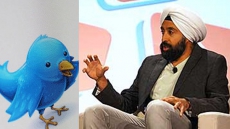The group Google asked to distribute $100 million to news outlets in Canada has publicly released its governance model, which it says focuses on sustainability, equity and innovation within the industry.
The Canadian Journalism Collective submitted plans to Canada's broadcasting regulator this week outlining the structure of the board that will ultimately oversee the funds. That submission was made public on Wednesday.
The Canada Radio-television and Telecommunications Commission requested the information as part of the public consultations to enforce the Online News Act, which compels tech companies to enter into agreements with news publishers for the use of their content.
The collective has had limited time to develop this novel framework under a law that is being closely watched by other countries that want to implement something similar, including the United States.
It will ultimately be up to the CRTC to determine if the collective's plan meets its expectations. If the governance model is satisfactory, then the CRTC will grant Google an exemption from the law.
This is a pivotal step as the journalism industry comes together to ensure the money is distributed equally, regardless of the business model or self-interest of any individual media outlet.
The CJC says its board will be compromised of 19 directors, including eight members representing publishers, eight members representing broadcasters and three independent members.
Requirements for the 19 positions include ensuring there is representation from large and small media outlets, startups, non-profit outlets and Indigenous, Black, racialized, francophone and official language minority groups.
The governance model also includes two separate councils, which would make recommendations on behalf of publishers and broadcasters, as well as an executive committee that would appoint non-voting advisers to the board.
CBC, which is guaranteed up to $7 million from the pot of money, will have a seat on the board and executive committee, but its representative will sit as an observer without any voting powers.
The collective also intends to appoint an ombudsman to whom the public and board can voice concerns, and a dispute resolution committee that would have the power to investigate grievances.
"The proposed high-level governance structure that the CJC-CCJ has submitted to the CRTC seeks to implement the Act and regulations by promoting sustainability, equity and innovation in the Canadian news ecosystem," Jean La Rose, a spokesperson and interim board director of the collective, said in a statement.
The governance structure will allow each member to have equal representation and encompass all types of news organizations, small and large, urban and rural, La Rose said.
Last year, Google agreed to keep news on its search engine and pay Canadian news publishers $100 million annually, indexed to inflation, in order to be exempt from the Online News Act.
Once Google gets an exemption, the company is set to deliver the money within 60 days to the collective, which would then elect its board and distribute the money to eligible news outlets.
"Our submission is the first step in outlining how the CJC-CCJ will establish policies and procedures that meet objectives and maintain the highest standards of integrity, independence, transparency and accountability," La Rose said.
"Our governance structure includes at-large and independent roles and officers to foster the trust of the Canadian public."
This structure would continue to be shaped throughout the CRTC consultation and through engagement with stakeholders, the collective said.
It also promises to support emerging news organizations, smaller media markets and innovative business models while ensuring marketplace fairness.
"As the digital news environment and consumer behaviours shift, no one existing business model should be disproportionately represented at the expense of innovation, sustainability and geographic outreach," the submission to the CRTC reads.
The collective was founded in May by an interim group of publishers and broadcasters that represent French-language, community and Indigenous news, along with outlets that specifically represent Black and under-represented Canadians.
Google chose the CJC to handle the media money, saying in a blog post last month that its principles were in alignment with the company's. Those included diversity, a robust government structure, a high level of transparency and assurance that as much funding as possible would go to news organizations.
A second collective led by big media players, called the Online News Media Collective, lost out in Google's selection process.
Earlier this year, Google put out an open call to news organizations that wish to receive compensation under the Online News Act, and about 1,500 outlets applied for the cash.
The collective will eventually review all news publishers that responded to the open call, and distribute the funds to publishers that meet the criteria as laid out in the law and regulations.
The money will be distributed proportionately based on how many full time-journalists the companies employ.




